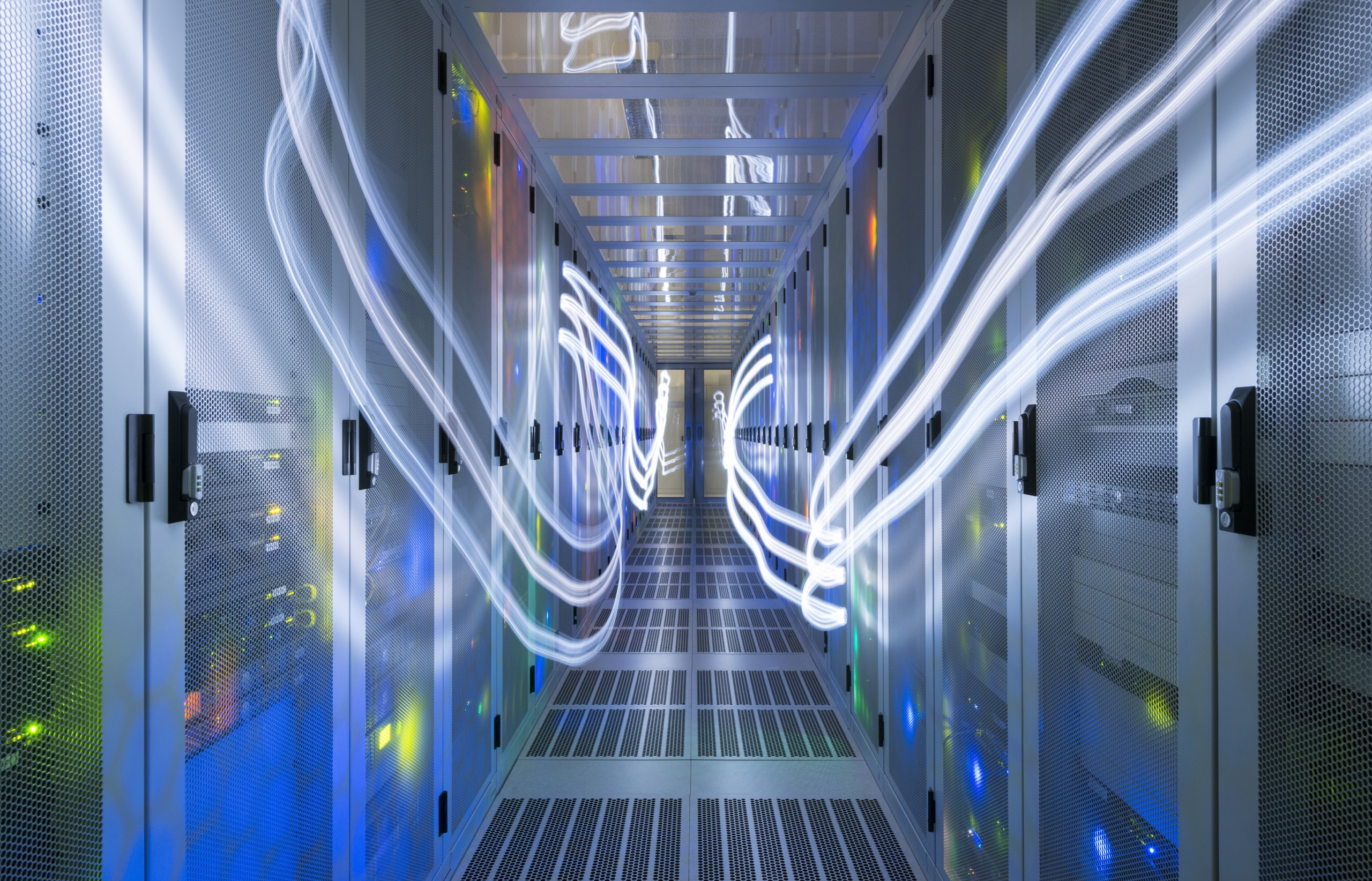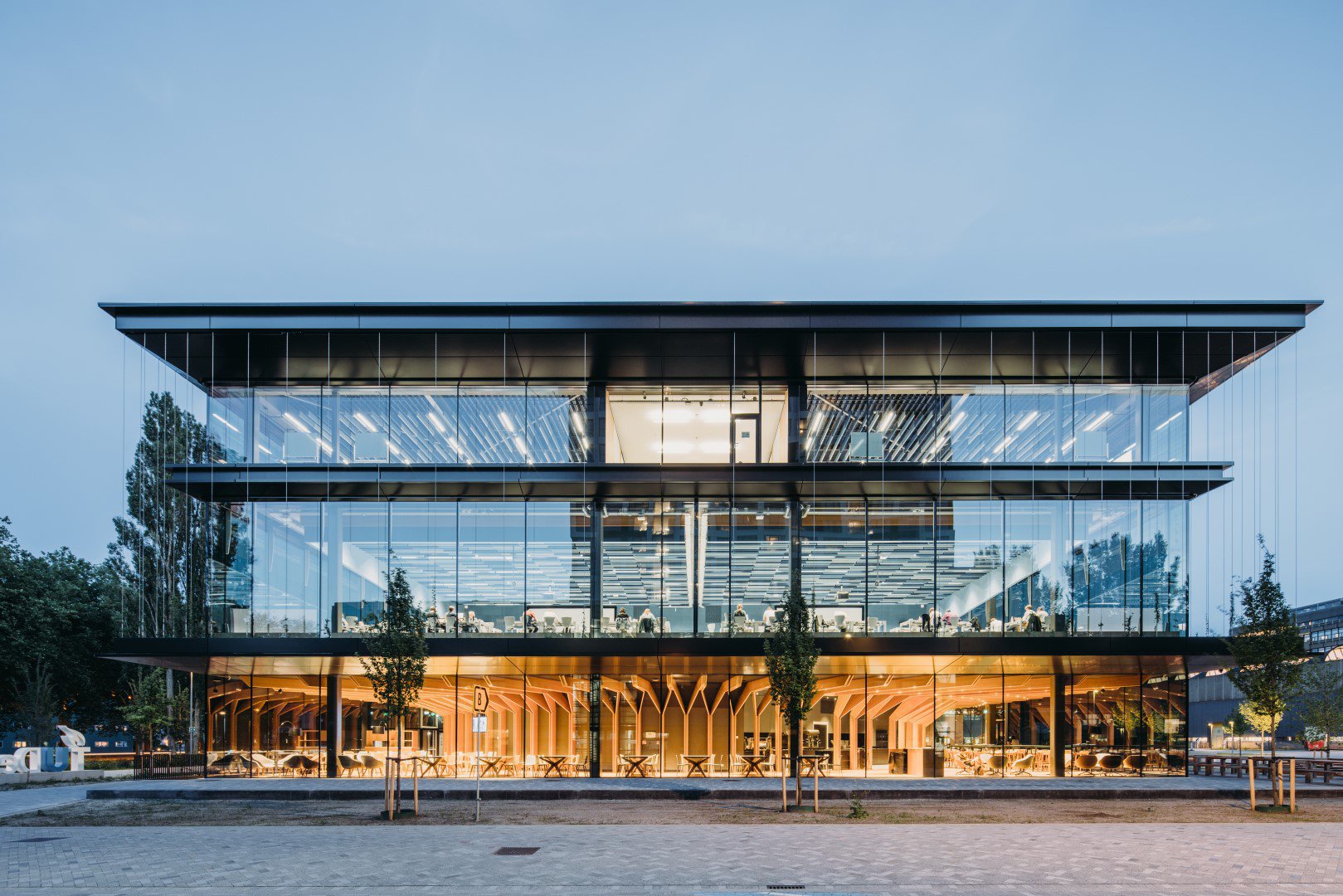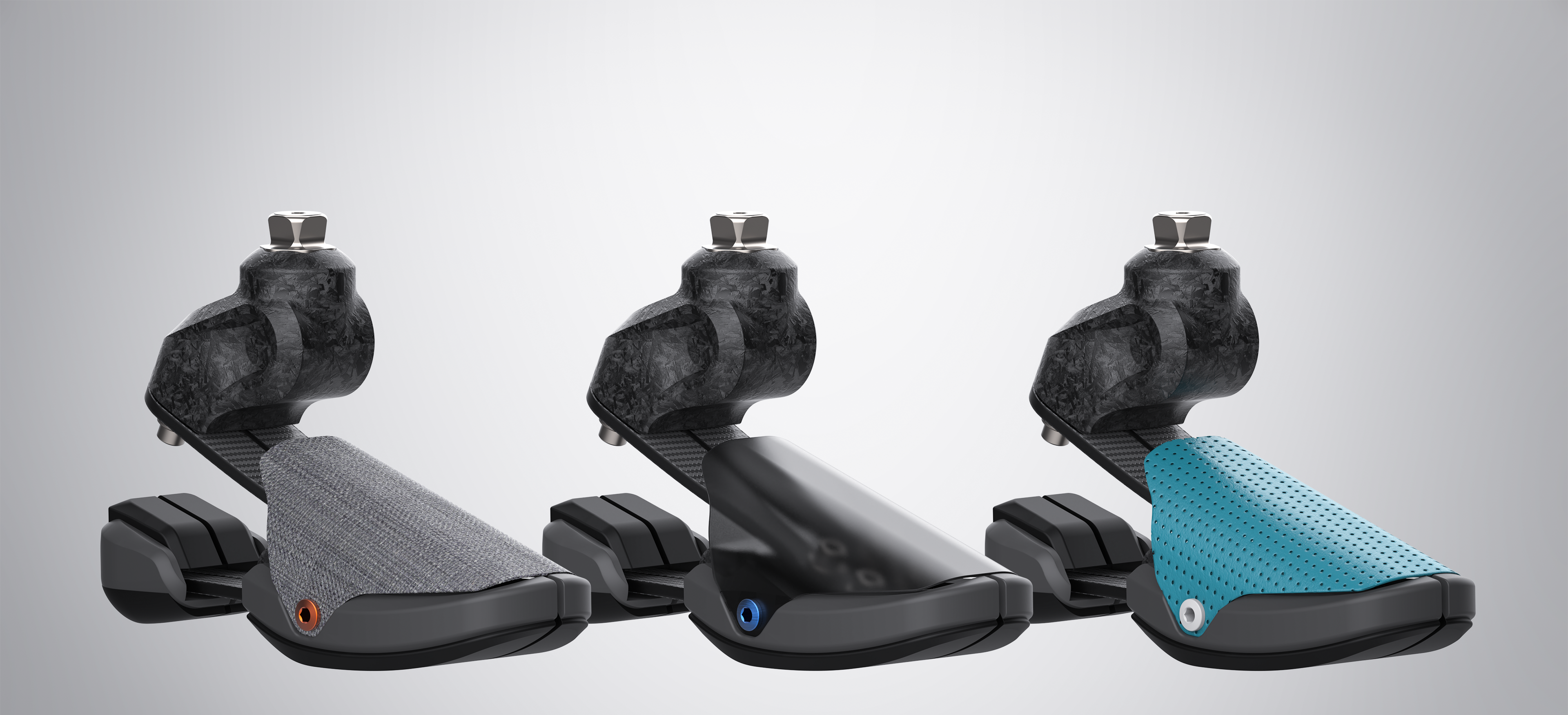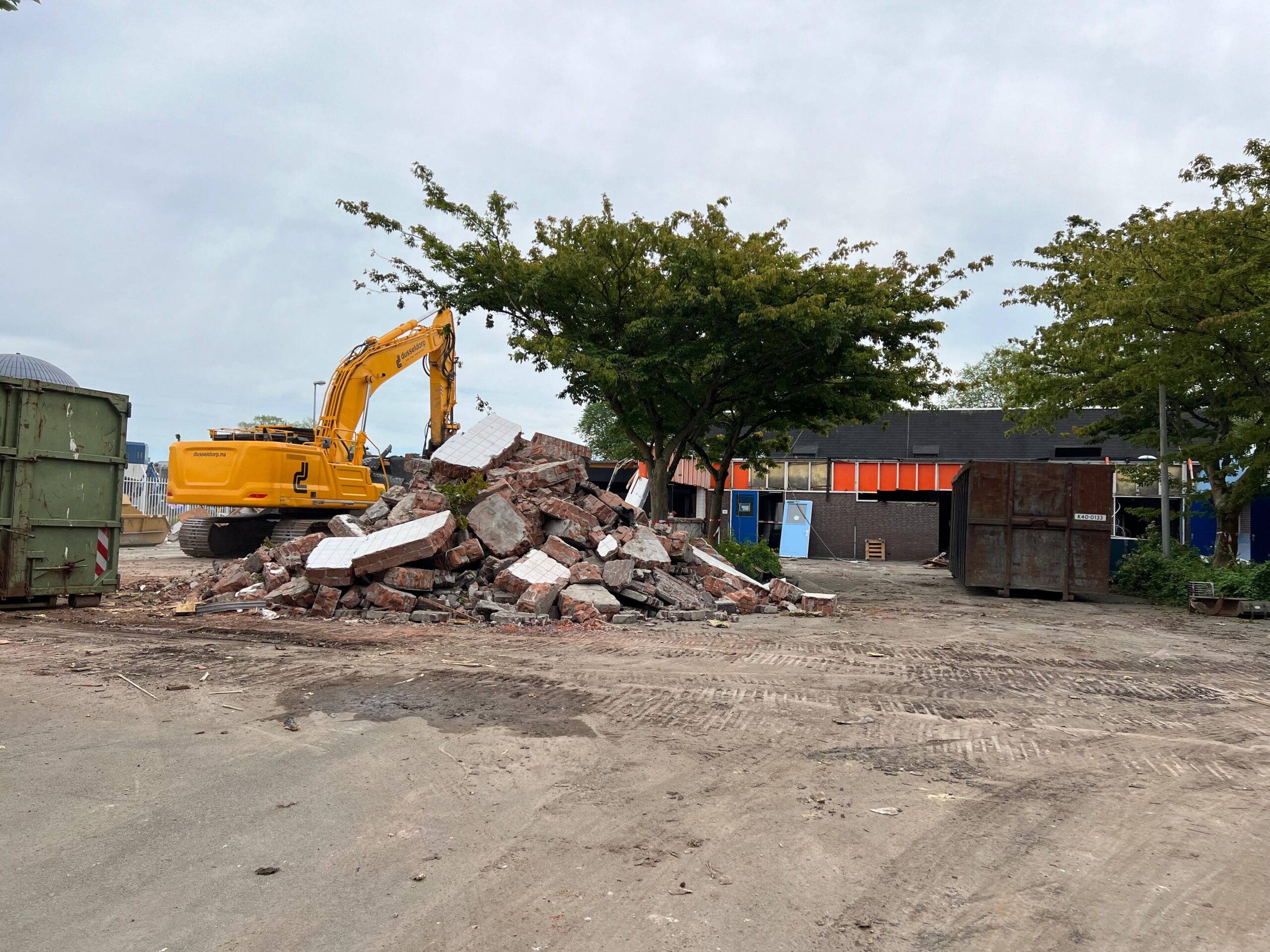It was one of the first companies to set up shop on the southern part of TU Delft Campus. The grey, inconspicuous building of NorthC Datacenters on Heertjeslaan plays an important role in our daily lives, because the servers housed here might well be responsible for your daily video calls with your colleagues. The company aims to become the leading player in regional data centres, which is good news for both TU Delft and the regional economy.
The core of the building buzzes with the sound of the servers. The flickering red and green lights indicate that the servers are busy processing data. Technicians walk back and forth. In the clean white spaces, the servers are located in racks, protected behind combination locks. For a number of customers, this does not go far enough. These customers have chosen to erect a metal fence around their servers for added security, even though security is already substantial: the data rooms housing the servers are protected by biometric access control.
The data centre forms the link between providers of cloud services and the end user. These providers rent server space in a data centre for storing such things as photos, files and music, or even the entire working environment. In other words, much of our day-to-day digital life runs through a data centre just like this.
99.999
‘This building is actually the cloud’ is something that soon becomes clear during the guided tour. The whole building has been designed around NorthC’s mission of guaranteeing to be ‘99.999 per cent’ operational. This is because critical data is stored here, such as patient data from a large regional hospital. Continuous availability of such data is essential for the medical world.
This is why everything is configured with built-in redundancy, whether it is the batteries that immediately kick in during power outage as two diesel generators start up or the fibre-optic cables of the internet providers that access the building at two different places. And if that is not enough, customers can also make a backup of their data in one of the other nine NorthC data centres.
‘It is anything but a normal office building,’ concludes CEO Alexandra Schless. ‘It requires a lot of additional investment to make everything redundant, but we want to do our utmost to ensure that our customers do not face interrupted services.’
“
‘Much of our day-to-day digital life runs through a data centre just like this’
Impact of COVID-19
The coronavirus crisis underlines this necessity. The fact that many of us have been forced to work from home in recent months has resulted in a huge increase in data traffic. ‘Many of our customers have had to increase capacity, especially to ensure communication via Zoom, Skype or Teams is possible for those working from home,’ explains Schless. ‘Not only the Netherlands but the whole world started working from home, and we witnessed this increase in our data centres.’
The company, which began life as a start-up in YESDelft as The Datacenter Group, has developed into a regional player in the past few years. The merger with NLDC (the former data centre business of KPN) last year was the reason for the change of name to NorthC, a reference to the expression to follow your true north. ‘It symbolises our mission to do our utmost for our customers,’ says Schless. The ‘C’ stands for customer, cloud, connectivity and content.
Technological environment
Connectivity has progressed in leaps and bounds, and this explains NorthC’s success. In the past it was necessary to be located in the vicinity of the AMS-IX (Amsterdam Internet Exchange) for fast internet connectivity, but the introduction of fibre-optic cabling has meant that this is no longer the case. And this makes regional data centres more appealing for companies as they can remain in the vicinity of where their data is stored. The building in Delft is located close to an international ‘highway’ for fibre-optic cables. This is an essential requirement if you are to function as a connectivity hub and is therefore one of the reasons why NorthC set up on TU Delft Campus.
But there are other reasons too. ‘The university is located here, as well as other tech companies,’ explains Schless. ‘It is beneficial for a data centre to be located in the middle of such a technological environment.’ NorthC provides network services to TU Delft and has also helped start-ups in the past. The company also buys renewable energy together with TU Delft and is looking into sustainable ways of using the residual heat that is produced.

“
‘Now that technology is developing so fast, knowledge exchange is becoming ever more important’
Alexandra Schless
5G and the Internet of Things
Schless wants to strengthen this collaboration with TU Delft, in a more substantive context too. ‘If you look at 5G and the Internet of Things (IoT), these are very important developments currently taking place.’ These are areas in which TU Delft is carrying out a lot research, which is also relevant for Schless’s company. ‘What is the impact of IoT on our network? How can we as a data centre be part of the rollout of 5G and the support of IoT applications, and what is needed for this?’
These are areas that Schless is eager to explore together with TU Delft. ‘Now that technology is developing so fast, knowledge exchange is becoming ever more important.’
Conversely, NorthC is also valuable for TU Delft and the companies on Campus. When it comes to 5G and IoT, a rapid response time, or latency, is extremely important. Just look at autonomous driving, for example, where huge amounts of data must be sent to the server for analysis and then back again to the vehicle. If this takes too long, accidents may occur. ‘That is why it is important that the providers of IoT applications are located as close as possible to data centres.’
Regional ecosystem
Schless predicts that the presence of NorthC on the campus and in the region will result in a regional ecosystem of providers of cloud services and end users. ‘Companies that develop 5G applications and IoT services want to be located close to us.’ That is good news for the regional economy. ‘It will lead to more business activity and more jobs.’




